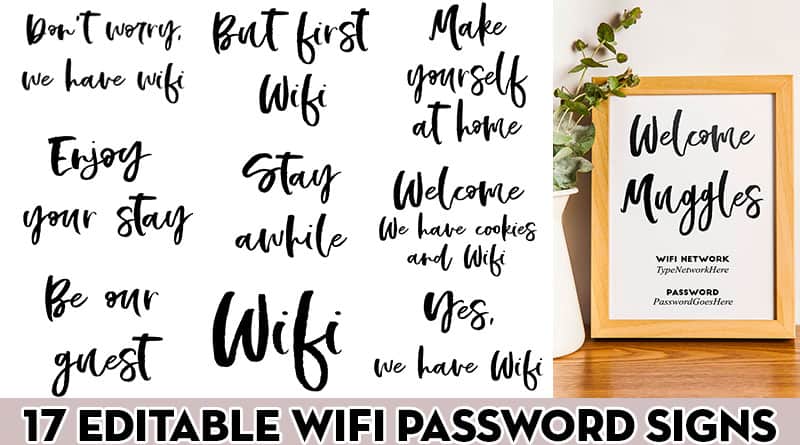

Besides the security risk, bringing a guest into this network can overload the system and bring the network to a crawl. In most homes, devices can see and talk to all other devices on the home network as well as the Internet. Ideally, this means WPA2 and AES encryption whenever possible, even on the guest network. If you are using a router that came with the Internet service provider make sure it uses the highest level of encryption available. The router is the “front door” to your home network. Keep your router locked in a safe place so that guests don’t tamper with it. Keep your router updated with the latest security updates and patches.Ĥ. Create strong, time-sensitive passwords that can be extended upon request or will simply disappear after the guest leaves.ģ. Make sure your router has an encrypted guest network.Ģ. Here are a few guidelines to follow before you leave your home in the hands of guests.ġ. Before offering your Wi-Fi passphrase make sure your guest understands that uploading or downloading unlawful content is absolutely unacceptable. When you leave your home to visitors, there are a few best practices to follow to make sure your network is in safe hands. All your NAS drives, your laptops, thermostats and perhaps even your IoT enabled safe are sequestered from this network. The guest will not be able to see or use your Internet-connected devices through this network. This network will appear as a different SSID and will operate isolated from the rest of your devices. Besides, no one outside your immediate circle of family and friends should know your home network password. It will save you the trouble of looking up your complex home network password. You can set up an easy to remember yet hard to hack password dedicated to this network. Luckily, these days most routers come with a guest network built in.Ī guest network has the advantage of having its own password. Whether it’s your social media addicted niece, your Airbnb guest or the handyman you hired to fix a door, they all want access to your Wi-Fi password upon entry. Yet, only 27% believe their home network will be compromised. In a recent survey, it was revealed that 7 in 10 consumers wish their home network were more secure. With the recent proliferation of IoT devices, the home network is bombarded with all kinds of malware and viruses that piggyback on seemingly harmless devices like fitness trackers and garage door openers. The security of your home Wi-Fi connection is serious cause for concern.

However, even the most well-intended guest walks in with the potential of bringing in viruses and malware with their devices and damaging the network you worked so hard to secure. Refusing to part with your Wi-Fi password when guests visit is very inhospitable.

When you open your home to your guests it is expected that you’ll open your network to them as well. “Don’t share your password” is the new “Don’t talk to strangers.” Yet when we have visitors at home, one of the first things we do is share our Wi-Fi password with them.


 0 kommentar(er)
0 kommentar(er)
